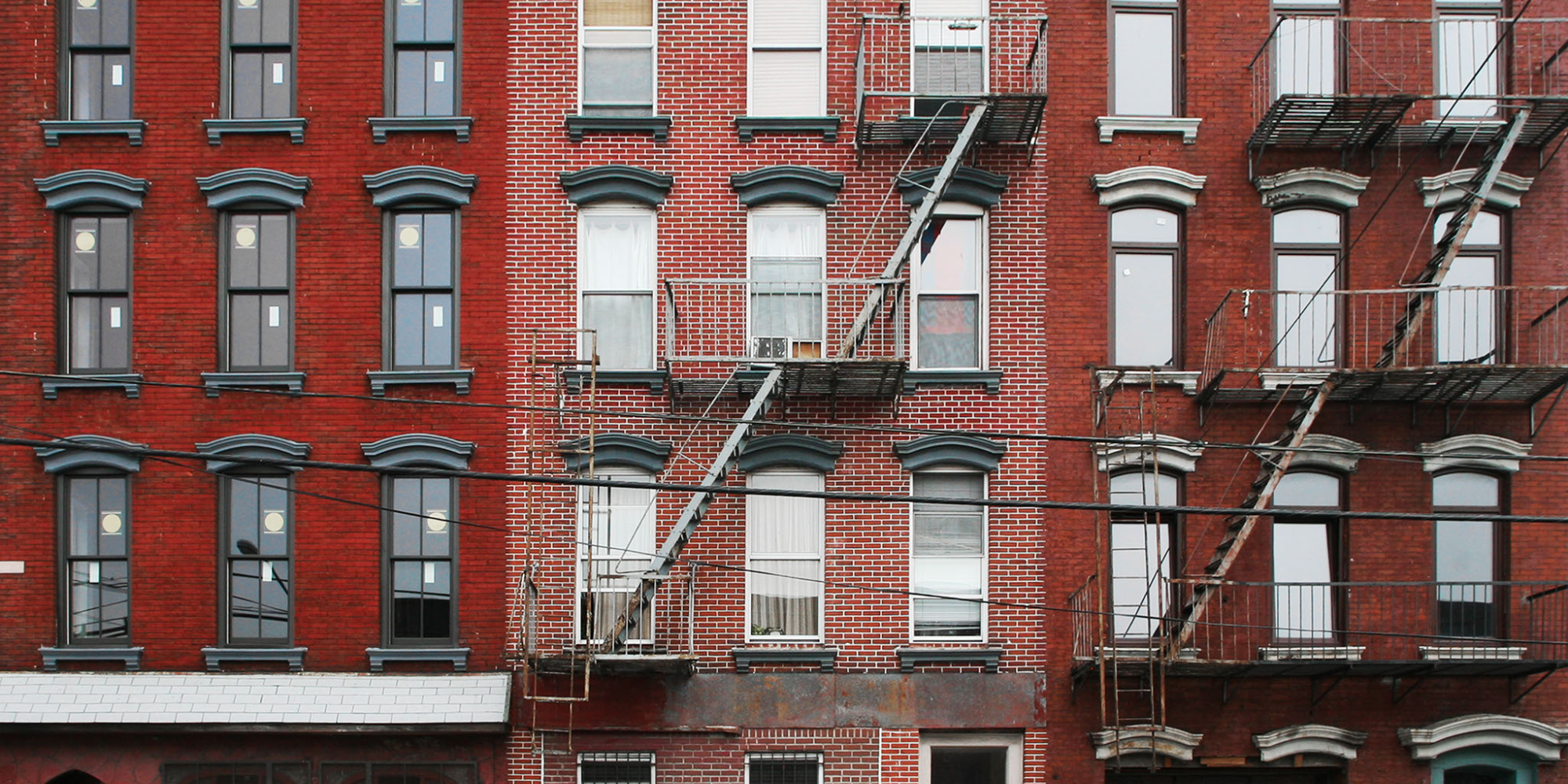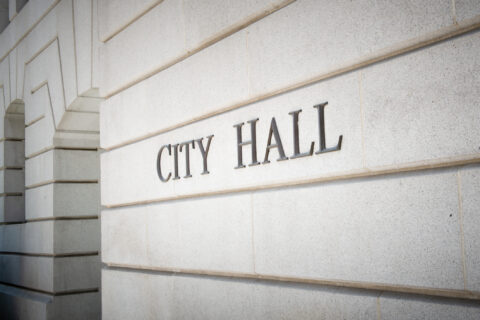Local elected officials are uniquely positioned to help their communities manage the economic and health impact of COVID-19 and to address severe chronic inequities exposed by the pandemic. This blog is part of a series dedicated to highlighting mayors’ priorities to help guide and focus local responses to support residents’ health and safety in the near term, and to position the city to improve equity and resiliency in the longer term.
With housing instability as a major contributor to coronavirus rates and nearly two-thirds of renters nationwide unable to purchase a home, many cities are focusing resources on housing and homelessness. NLC analyzed the 100 most populous cities to understand how mayors are communicating news about these issues, using data collected from Twitter as of October 16th. Seventy-four percent of mayors from the top 100 cities tweeted about housing issues during 2020, with the highest rate of tweets occurring in March and almost half of all tweets focused on resources for individuals experiencing homelessness. “A lesson I’m hoping everyone takes away from this pandemic: we all deserve a place to feel safe & secure,” Richmond, VA Mayor Levar Stoney tweeted.
Amidst the pandemic, many city leaders tweeted about creative shelter solutions. Portland, OR’s PHFS Family Village is the first shelter in Oregon to be designed using trauma-informed architecture. “Step by step, building by building…this is how we holistically alleviate the homeless crisis.” Portland Mayor Ted Wheeler tweeted. Pittsburgh, PA plans to build a five-story Innovative Homeless Shelter downtown, which will provide services addressing addiction, unemployment and physical and behavioral health. Honolulu, HI built 84 units of live/work space for low-income artists and their families, with 12 units dedicated to households facing chronic homelessness. Long Beach, CA launched its first SAFE parking lot for people experiencing unsheltered homelessness and living in cars, and Los Angeles, CA has created temporary housing opportunities in parks and recreation centers, hotels and trailers. Some cities are thinking longer-term with solutions for individuals to transition from shelter to permanent supportive housing. San Francisco, CA’s Trans Home SF initiative is the city’s first transitional housing program for transgender and gender-nonconforming adults, providing temporary housing for 12 individuals to live rent-free as they receive other services and support. Los Angeles, CA’s L.A. EnterpRISE initiative empowers homeless Angelenos with entrepreneurship tools and financial assistance to support their small businesses and a long-term plan to transition from shelter into secure housing.
Housing instability and homelessness can negatively impact one’s physical and mental health, and many mayors are tweeting about local resources aimed at health support for individuals experiencing homelessness. Chicago, IL opened its first emergency homeless assessment and rapid-response center, which includes a 100-bed isolation facility for homeless people diagnosed with COVID-19 and mental health and substance abuse treatment. “Thank you to the staff that has been working around the clock to ensure our city’s most vulnerable stay protected during this crisis,” Chicago Mayor Lori Lightfoot tweeted. In Portland, OR, Nesika Ilahee, “Our Place,” is a new affordable housing community with recovery, mental health and more supportive services for Native American families who have been disproportionately affected by the housing crisis. Fort Wayne, IN also recently helped finance a 56-unit apartment complex to provide permanent housing and on-site mental health services for residents experiencing chronic homelessness.

With millions of renters— particularly Black, Latinx, Indigenous and People of Color — at high risk of eviction at a time when staying home has been central to staying safe, many cities used Twitter to inform their communities of eviction prevention efforts, such as tenant assistance programs and moratoriums on residential and commercial evictions and utility shutoffs. Indianapolis, IN’s 2021 budget includes $250,000 in funding for its Tenant Legal Assistance Project and the Eviction Avoid Project with Indiana Legal Services. Richmond, VA invested $6 million in emergency funds for its Eviction Diversion program and is addressing root causes of eviction and identifying solutions through the creation of a city Eviction Task Force. Albuquerque, NM’s Eviction Prevention Program is providing financial assistance on rent and utility bills, and Philadelphia, PA’s Eviction Diversion Program brings landlords and tenants together to work out agreements without going to court. Louisville, KY has created an eviction prevention COVID-19 relief fund. “Evictions are no-win situations,” Louisville Mayor Greg Fischer tweeted.
Local leaders are also tweeting about innovative plans for affordable housing development.
Richmond, VA has increased funding to the Affordable Housing Trust Fund and created a biennial real estate plan to make city-owned land available for affordable housing development, with 80 percent of parcels going to a local land trust and nonprofit affordable housing developers. Oakland, CA has been awarded $90 million from the state to develop green, resilient affordable housing located near major public transportation hubs, aiming to create 462 affordable housing units for working families. Washington, DC, with its goal of delivering at least 12,000 units of affordable housing by 2025, is the first city in the nation to create affordable housing goals by neighborhood. In Detroit, MI, every new housing development built with city subsidies will have 20 percent affordable units. The city created an affordable housing lending fund and raised over $25M from philanthropic partners. “The preservation of affordable housing is a critical piece of our overall vision of inclusive growth, ensuring that all Detroiters have a place amid our city’s renaissance, no matter how much money they make,” Mayor Mike Duggan tweeted.
As the coronavirus pandemic continues, city leaders are expanding resources for vulnerable populations and implementing services to ensure every resident has access to safe, affordable housing. Throughout this process, mayors employ Twitter as a key vehicle in keeping the community informed.










